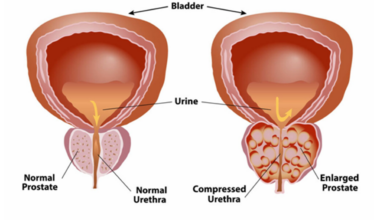Healthy kidneys perform several vital functions to keep your body in balance. They filter out waste products and excess water, aid in the production of red blood cells, and help regulate blood pressure. Kidney failure occurs when one or both kidneys lose the ability to function properly, meaning they can no longer perform these essential tasks effectively. This condition indicates that 85-90% of kidney function is lost, rendering the kidneys incapable of sustaining life without intervention. Without treatment, kidney failure can be fatal within a short period. It is crucial for individuals with kidney failure to seek immediate medical attention and consult with specialists like Dr Ashok Sarin, the best nephrologist in Delhi, to determine the most appropriate treatment plan.
Kidney Failure Treatment
While kidney failure doesn’t have a cure, it is possible to lead a productive and longer life with treatment. Here are the key treatments for kidney failure.
1. Dialysis
Kidney failure occurs when your kidneys can no longer effectively remove waste and excess fluids from your blood. This buildup can lead to various health issues, making you feel unwell. Dialysis is a medical treatment that takes over some of the functions of your kidneys, helping to cleanse your blood and remove excess fluids. Healthy kidneys work round the clock to maintain your body’s balance, but dialysis can only perform 10-15% of what normal kidneys do. There are two primary types of dialysis for managing kidney failure:
- Hemodialysis: This procedure uses a machine to filter your blood. Most people undergo hemodialysis three to four times a week at a hospital or a dialysis clinic.
- Peritoneal Dialysis: This method involves administering a dialysis solution through a catheter into your abdominal lining. The solution absorbs waste products and excess fluids, which are then drained back into a bag. Peritoneal dialysis can often be done at home.
Both types of dialysis are crucial for individuals with kidney failure, helping to manage the condition and improve quality of life.
2. Kidney Transplant
A kidney transplant involves surgically implanting a healthy kidney from a donor into a person whose kidneys have failed. This donor kidney can come from either a living or a deceased donor and takes over the essential functions that the recipient’s kidneys can no longer perform. While a kidney transplant is a highly effective treatment for kidney failure, it is not a cure. Recipients must take medications and adhere to a special care regimen for the transplanted kidney for the rest of their lives to ensure its proper functioning and longevity.
3. Conservative Management
If you opt not to pursue a kidney transplant or dialysis, conservative management can help you manage symptoms and maintain a certain quality of life. This approach focuses on using medications and adopting a kidney-friendly diet to alleviate symptoms and improve comfort. However, it is important to note that conservative management does not treat kidney failure and will not sustain life in the long term.
4. Medications
When you have kidney failure, the medications you take may need to be adjusted. Since many medicines are filtered out of the blood by the kidneys, it’s crucial to work with your healthcare team to ensure your medications remain both safe and effective. Additionally, consult your healthcare provider before starting any new supplements, over-the-counter products or herbal remedies to avoid potential interactions.
For managing complications associated with kidney failure, you might require specific medications or supplements, such as calcium, vitamin D and iron, or treatments to control blood levels of phosphorus or potassium. If you are undergoing dialysis, adjustments to your medication dosage or timing may be necessary, as dialysis can remove certain drugs more quickly from the bloodstream. Conversely, some medications may accumulate in the blood of dialysis patients, necessitating careful monitoring.
For those who have undergone a kidney transplant, anti-rejection medications, also known as immunosuppressants, are essential. These drugs help suppress the immune system’s response to prevent it from rejecting the new kidney. The immune system normally attacks foreign substances, but these medications reduce its activity to protect the transplanted organ.
Managing kidney failure is critical to maintaining health and quality of life. While there is no cure for kidney failure, treatments such as dialysis, kidney transplants, and conservative management can help you live a longer, more comfortable life. Each treatment option has its own benefits and requirements, and a tailored approach is essential for effective management. To discuss your treatment options and receive personalised advice, schedule a consultation with Dr Ashok Sarin, the best nephrologist in Delhi, via Apollo today.









